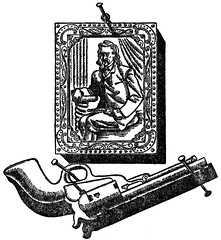If you aren’t reading Glenn Greenwald on this, you should be. The latest turn of the screw is that Visa have said they are suspending payments. The good news is that, at least for Europe, this will take time to implement. The Wikileaks donations page is currently here
Tomorrow sees a vote in the House of Commons on the principle of whether to triple the fees charged to undergraduate students at UK universities and to completely withdraw state funding from all subjects except science, medicine and engineering. That’s the headline proposal, the reality is somewhat more complex since the changes are accompanied by a government-sponsored student loan scheme under which those who fail to secure reasonably paid jobs will not be required to pay and will eventually be forgiven their debt (so some of the cost will end up falling to the taxpayer). The other uncertainty surrounds the level of the permitted fee: government has said that it will only allow a £9000 charge if universities do certain as-yet unspecified things to widen access, but £6000 will usually be inadequate to cover costs.
Whether the changes are distributively regressive or progressive (compared to the status quo) is a matter of some controversy, but the assumption that is is progressive depends on assumptions about future government behaviour (around the adjustment of thresholds for repayment) that are perhaps optimistic. Most of the early evidence suggests that prospective students from low-income figures will be deterred from higher education by the headline figure of the debt they will face (perhaps many many times their current family income) even though the reality is not as scary as that scary scary figure. I’ve been arguing with some other philosophers on a comments thread at Leiter , some of what is below recapitulates that, and some of it is a bit rantish. Apologies for that.
[click to continue…]
At Henry’s recommendation, I’m reading (actually, listening to on audiobook) The Half-Made World, by Felix Gilman. It’s great! The mythic clash of Gun and Line, Agent and Engine. Since I’ve been covering the gun angle with the last few posts, I’ll toss in a bit of authentic, vintage steampietism, courtesy of another great Library of Congress online resource, An American Time Capsule: Three Centuries of Broadsides and Other Printed Ephemera (great fun to poke around).
Well, I don’t suppose I’ll have another opportunity to make two tintype-related posts in a row, so I’ll take it. I’ve got a little book on my shelf, Tintypes In Gold, by Joseph Henry Jackson (1939). It tells the (non-fiction) stories of four California highwaymen of the gold rush era: Black Bart, Rattlesnake Dick, Dick Fellows and Tom Bell. I bought it because it contains ‘decorations by Giacomo Patri’. Patri also published, in the same year, White Collar – a fantastic wordless novel in linocuts, in the Lynd Ward mold. I think it’s better than anything Ward did. Anyway, I was curious about Tintypes. And now I’ve made a little Flickr set so anyone else who is curious (or a Patri completist) can see as well.
Nothing so special, it turns out. Given the subject matter, I was hoping for something wild and amazing. But I see someone has the entirety of White Collar online (but only in miniature). Also, here’s a nice little bio piece. [click to continue…]
